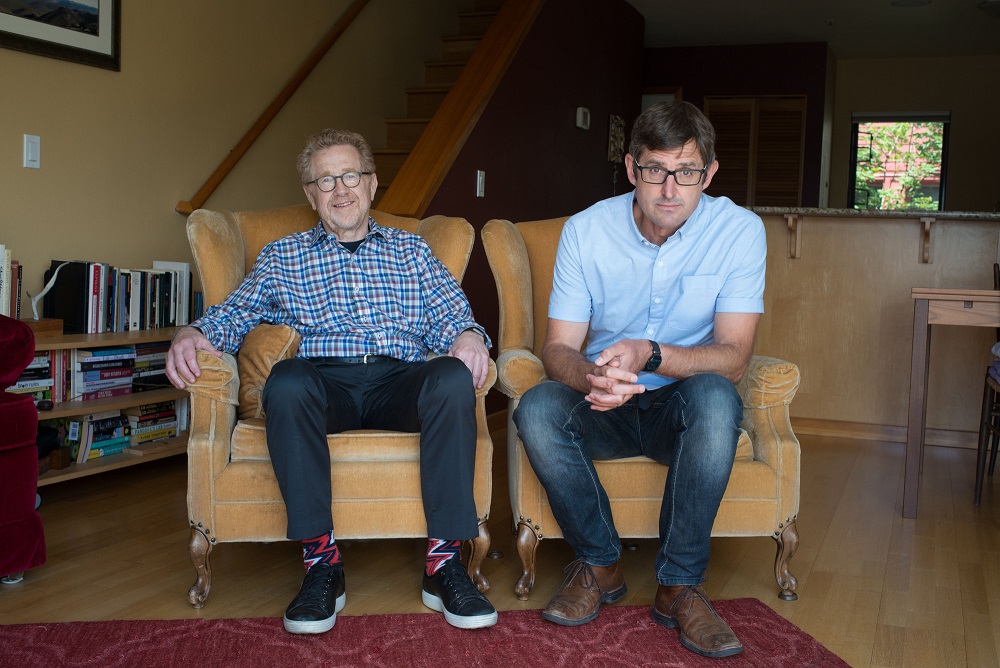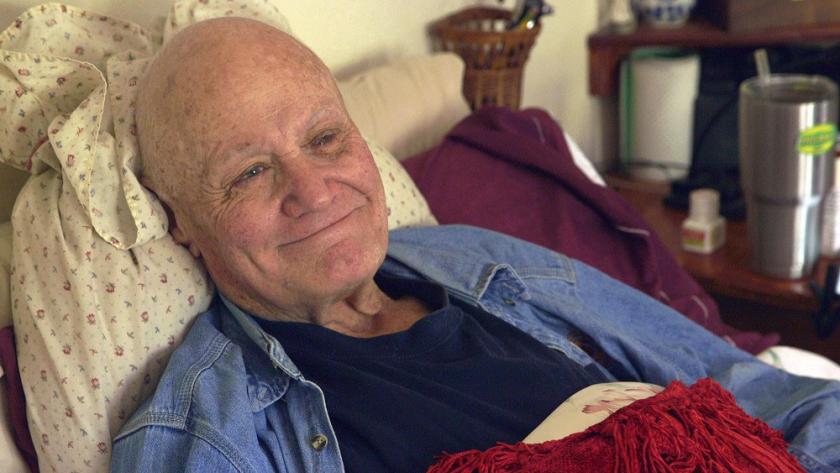The toughest subject you can imagine: when, and how, would you choose death over life? This riveting film examined that excruciating dilemma within the legal frameworks on offer to some of the terminally ill in the United States. Louis Theroux, narrator and interviewer, met people who wished to take control of their end, and encountered all the moral complexities of the issue along the way. It was an absolutely absorbing, and often very moving experience.
Seven states in the US have legalised self-administered lethal medication (with professional safeguards), and such a law is being considered in 23 more. The pills and powder cost some $350. Death often occurs within 30 minutes, but may sometimes take 24 hours or longer. One recipient of the medication said that just having it on hand had made her life better.
For Gus, it was a question of whether he had waited too long and become too weak
The charming Gus was Theroux’s first interlocutor, a septuagenarian retired respiratory therapist who had lived for 54 years in California, a refugee from Texas. Gus was 74, and he and his loving wife Rianna had twin daughters; he was newly a grandfather too, describing his baby grandson Waylan as “his immortality”. Enduring Stage 4 pancreatic cancer, his professional career in hospitals had framed his affirmative decision about assisted dying (his example, known to many of us, was the pain-free putting down of an aged dog). He had thought of a gun, his 357 Magnum (but what a mess), ditto a motorbike accident, but medication seemed the most reliable.
In 2017, 374 people in California used the option of self-administered medication to end their life, allowed with medical permission by the state’s End of Life Option act. The criterion is that medical opinion suggests they have only six months to live, but this is very often an inexact prognosis. They also have to be strong enough to self-administer, and of sound mind.
Most were over 60, but in San Jose Theroux visited Lori, 47, a loving wife and mother; her younger son, 11-year-old Braden, was fully cognisant of his mother’s situation. The cancer was in her liver, her bones, her lymphatic system, but talking to Theroux she seemed not only alert but looked well; later we saw her after chemo, wearing the turban associated with hair loss. She was outliving her prognosis. Lori was exceptionally articulate about her decision to have the means to end her life should she so wish, and had discussed it all with her family: Braden, in heartbreakingly calm conversations with Theroux, seemed well aware of all the ramifications. Lori told us that how we die crucially impacts the people we leave behind. In Oregon we met Brian and Lowrey, volunteers in the “Final Exit” network that seems to operate both within the law and perhaps beyond it (pictured above, Theroux and Brian). “Exit Guides” advise people who want to die. Assisted suicide is illegal, but talking is protected by the First Amendment. "Clients" for Exit Guides have to be mentally competent, and must have neither close family nor friends to help.
In Oregon we met Brian and Lowrey, volunteers in the “Final Exit” network that seems to operate both within the law and perhaps beyond it (pictured above, Theroux and Brian). “Exit Guides” advise people who want to die. Assisted suicide is illegal, but talking is protected by the First Amendment. "Clients" for Exit Guides have to be mentally competent, and must have neither close family nor friends to help.
Wheel-chair bound Debra had dementia-like symptoms and health problems resulting from a bad car accident, and her husband had died recently; he had been her carer and the love of her life, and she was now totally alone and, as she explained, financially challenged, unable to pay the possible future expense of a high-end care home. The Exit Guides felt gratified that they could help someone to die on their own terms.
Paradoxically the tales were profoundly sad, but not depressing
Back in California, Gus told Theroux that he would have gone some weeks before had his family had been willing to let him go. Going through chemo, if you get too sick you cannot hold anything down, and one of the tenets of the legal system is that you have to take the medication yourself. For Gus, it was a question of whether he had waited too long and become too weak.
With Debra, Brian and Lowrey had been her two best friends for the past month or so, and they went down at her request to be with her when she chose to die. She felt that after death she would be reunited with her beloved husband, and she had charmingly already told Theroux that she would like to come back and see his film. But it left some very disturbing thoughts behind.
Gus, too, had made up his mind. Seven-and-a-half hours after his self-administered lethal dose, he died, surrounded by family and friends in a bedside vigil, with music. Watching it (or whatever parts of it were there in the film) was a moving experience.
Theroux shared his unselfconscious amazement at these stories of those who were so consciously choosing death. Paradoxically the tales were profoundly sad, but not depressing, perhaps because of their intrinsic interest – and also due to our own wonder about what we ourselves might do in such a situation. Theroux proved himself a highly empathetic companion through a sometimes gruelling hour, and Choosing Death must be among the most memorable of his documentary explorations to date.















Add comment